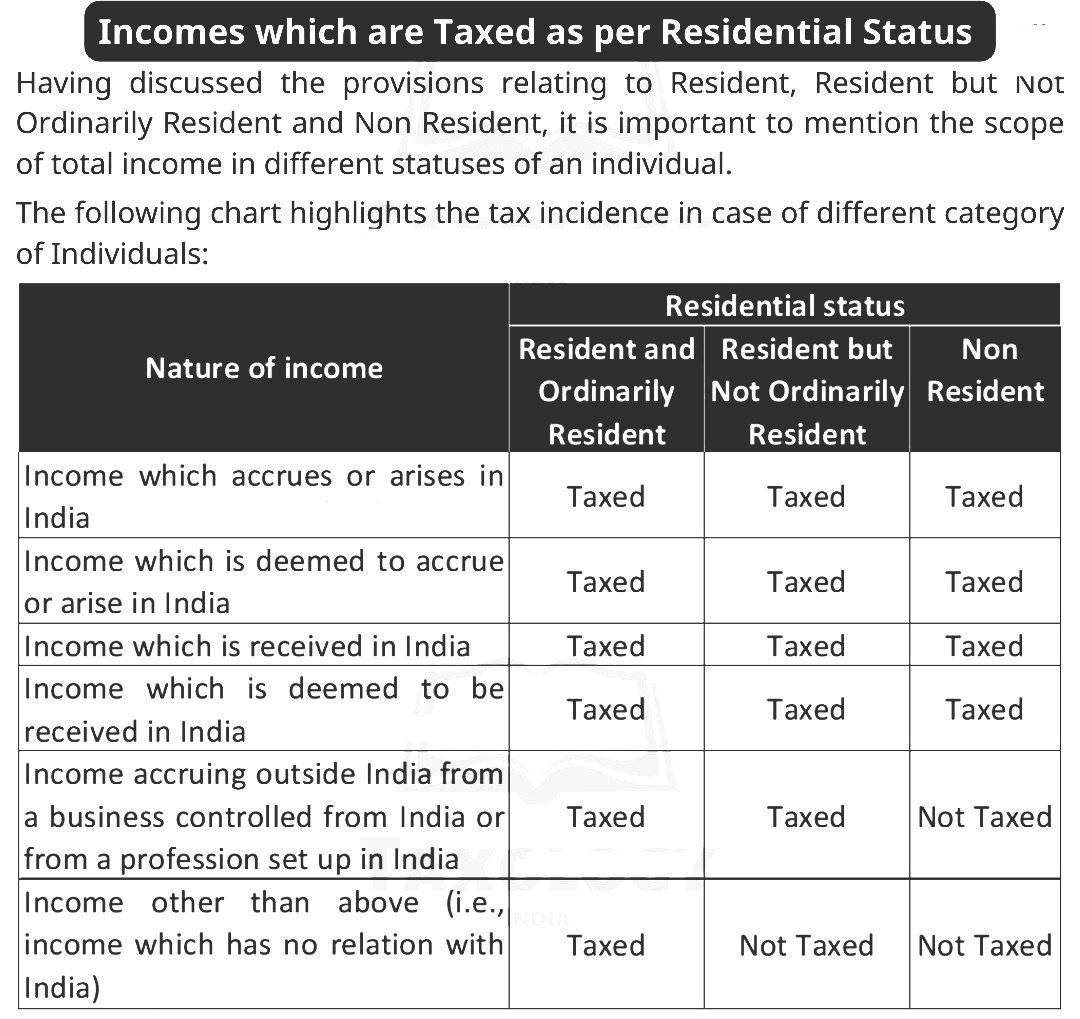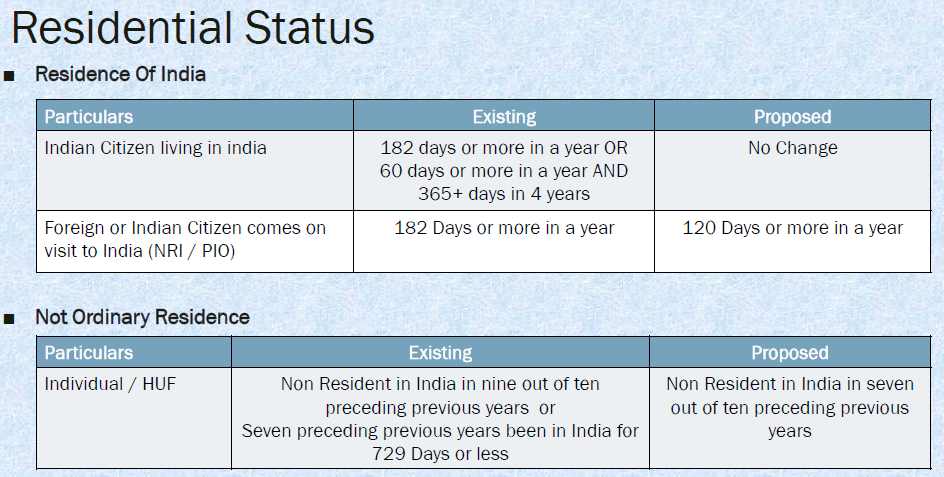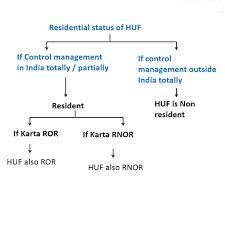Residential status under income tax and FEMA
Page Contents
Tax incidence on an Assessee depends on his Residential status.
For instance, whether an income, accrued to an individual outside India, is taxable in India depends upon the residential status of the individual in India.
Similarly, whether an income earned by a foreign national in India (or outside India) is taxable in India, depends on the residential status of the individual, rather than on his citizenship.
Therefore, the determination of the residential status of a person is very significant.
RESIDENTIAL STATUS ON INDIVIDUAL
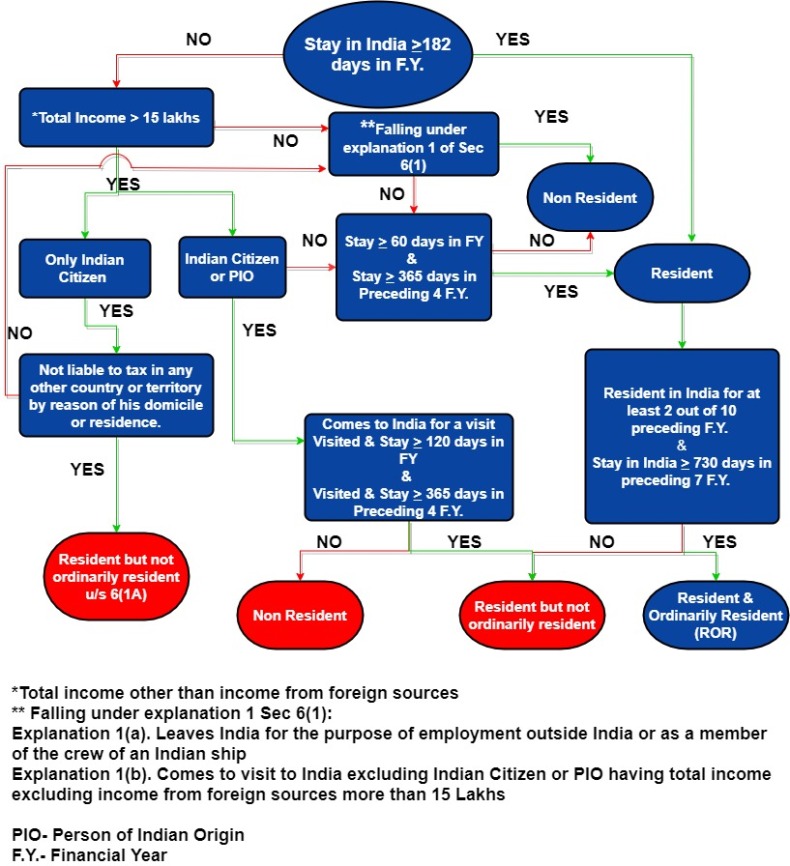
An Individual is said to be a resident Indian for the purpose of Income-tax if one of the following Basic conditions are satisfied.
- An Individual is in India for a period of 182 days in the financial year in which he is getting his salary income or,
- Individual is in India for a period of 60 days or more during the financial year.
- In which he gets his salary and 365 days or more during 4 years immediately preceding to that financial year.
Read our articles:
- How to file a return of TDS online
- New TDS deduction No cash transactions exceeding 1 Crore -Section 194N
- Extention of TDS/TCS statement filing Date
the Finance Act, 2020: If an Indian citizen or a person of Indian origin’s total income, other than income from foreign sources, exceeds INR 15 lakhs during the previous year.
The Finance Act, 2020, w.e.f. the assessment Year 2021-22, has changed the aforementioned exception to stipulate that the period of 60 days indicated in point 2 above shall be replaced with 120 days.
The term “revenue from foreign sources” refers to income earned or derived outside of India (except income derived from a business controlled in or a profession set up in India).
Individuals who do not meet any of the aforementioned criteria are considered non-residents of India (NRI).
The above-mentioned second requirement will not apply in the following circumstances:
- Any Indian citizen leaving the country for the aim of finding work (including self-employment) outside the country.
- Indian citizens fleeing the country as members of an Indian ship’s crew.
- Any individual of Indian ancestry or an Indian citizen residing outside of India who visits India.
Additional Requirements
If a person meets any of the primary criteria, they are considered an Indian citizen.
To become an Ordinary Resident of India, they must also meet the following two requirements:
Out of the previous ten financial years, the person spent at least two years in India directly before the current financial year AND
- Out of the previous seven financial years, the person spent at least 730 days in India immediately before the current financial year.
- If any of the aforementioned qualifications are not met, a person becomes a Not Ordinary Resident of India (RNOR).
If one of the above conditions is satisfied then he is a resident of India as per Income Tax. Non-Resident in India if he satisfies none of the basic conditions.
RESIDENT AND ORDINARILY RESIDENT OR RESIDENT BUT NOT ORDINARILY RESIDENT
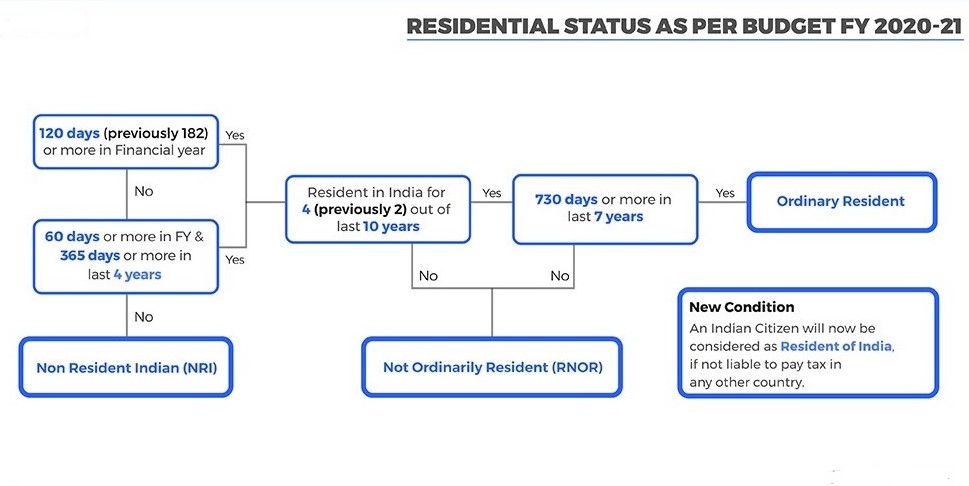
If the Individual fulfills one the following conditions then he said to be a resident but not ordinarily resident of India:
- An Individual is a non-resident in India for 9 years out of 10 years immediately before the relevant financial year.
- An Individual is in India for a period of less than 729 days during 7 years immediately before the relevant financial year.
Else, he is considered as a resident and ordinarily resident in India.
These conditions need to be tested every year for every Individual.
- When you are calculating the number of days, you have to include the day you left India and the day you arrived in India as part of your total stay in India.
2. Stay in India includes staying in territorial waters of India i.e. up to 12 nautical miles into the sea.
3. The stay need not be continuous. All different periods of stay in India have to be added up.
RESIDENTIAL STATUS OF HUF
A Hindu undivided family is said to be a resident in India if the control and management of its affairs is wholly or partly situated in India.
A Hindu undivided family is a non-resident in India if the control and management of its affairs is wholly situated out of India.
In order to determine whether a Hindu Undivided Family is a resident or a non-resident, the residential status of the karta of the family during the previous year is not relevant
Residential status of a company
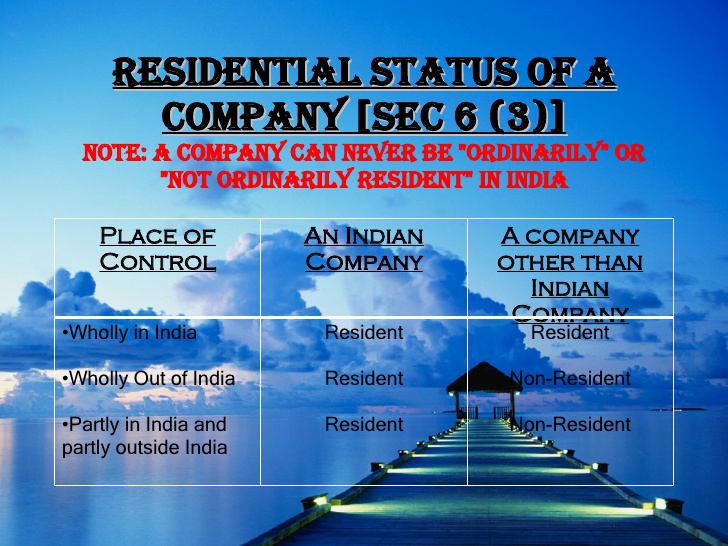
Other people
Every other person is resident in India if control and management of his affairs is, wholly or partly, situated within India during the relevant previous.
On the other hand, every other person is non-resident in India if control and management of its affairs is wholly situated outside India.
Residential status and income to be taxed in India
-
If you are an NR (Non-Resident)
a) You are liable to pay tax “only” on the income earned in India.
b) You are “not taxed” on any income earned outside India “nor” on the income earned outside India out of a business controlled from India or a profession set-up in India2.
- If you are RNOR (resident but not ordinarily resident)
a) You are liable to pay tax on the income earned in India + on the income earned outside India out of a business controlled from India or a professional set-up in India
b) we are “not taxed” on any income earned outside India3. If you are ROR (resident and ordinarily resident)
You are liable to pay tax on all types of incomes i.e.
a) what you earn in India
b) earnings outside India out of a business controlled from India or a profession set-up in India,
c) and also on all other incomes earned outside India
The Foreign Exchange Management Act, 1999 (FEMA):
Section 2(w) – “person resident outside India” means a person who is not resident in India
Section 2(v) – “person resident in India” means-
- The person residing in India for more than 182 days during the course of the preceding financial year but does not include-
- A person who has gone out of India or who stays outside India, in either case-
- for or on taking up employment outside India, or
- Carrying on outside India a business or vocation outside India, or
- In case of any other purpose, in such circumstances as would indicate his intention to stay outside India for an uncertain period;
- Person who has come to or stays in India, in either case, otherwise then-
- For or on taking up employment in India, or
- Carrying on in India a business or vocation in India, or
- In case of any other purpose, in such circumstances as would indicate his intention to stay in India for an uncertain period;
- any person or body corporate registered or incorporated in India,
- an office, branch or agency in India owned or controlled by a person resident outside India,
- office, branch or agency outside India owned or controlled by a person resident in India;
- A person who has gone out of India or who stays outside India, in either case-
Difference between the definition of “person resident in India” as per FEMA and Income Tax Act
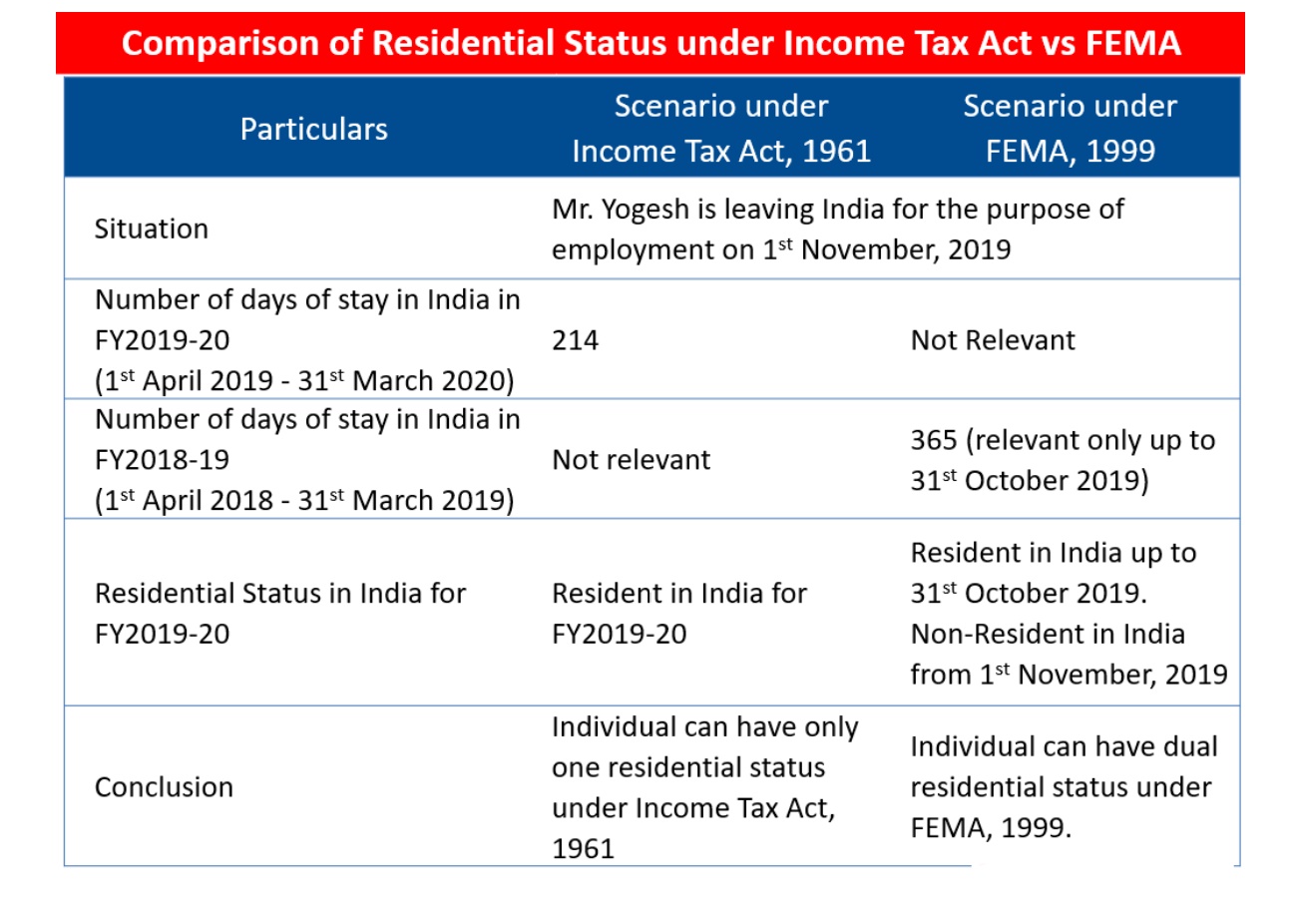
Difference between Resident definition under Income Tax Act and FEMA
- “Financial Year” is not defined under FEMA, but by convention, it is assumed to refer to 1st April to 31st March
- This Act requires the physical presence of 182 days or more, whereas, FEMA requires 183 days or more
Income-tax Act considers the physical presence of a person in the Current Financial Year, whereas FEMA considers the physical presence of a person in the Preceding Financial Year

